By XHABIR DERALLA
The world can draw at least three big lessons from the German reunification of October 3, 1990, which is celebrated as Day of German Unity. The reunification of Germany took place less than a year after the fall of the Berlin Wall on November 9, 1989. This process also marked the fall of the Soviet totalitarianism in the world and the end of the “era of partition” that the Cold War produced.
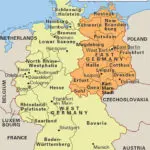
The two Germanys were divided by a barbed wire on the borders, the Berlin Wall and the sharply opposing ideologies that led the Cold War for more than four decades. The Russian boot distorted the face of Europe and a great part of Germany.
West and East Germany were truly two completely different states after 45 years of being divided. What the world can draw as a lesson from these processes is that a historic project for national reconciliation and unification is possible only if there is mutual respect and solidarity. Songs and bar talks about unification lead nowhere. Real unification also means improving the lives of people, and much effort and sacrifice is needed for this, and not songs and beating chest.
All that is not without difficulties. Even after 32 years, the differences in the economic development between the western and eastern parts of the country are still visible. The Russians, simply, impoverished and drained East Germany so much, that not even decades later can the differences in development be overcome. In the first 20 years of unification alone, West Germans invested 1.3 trillion euros in the eastern part of the country. To this day, subsidies from the West to the East are between 70 and 80 billion euros.
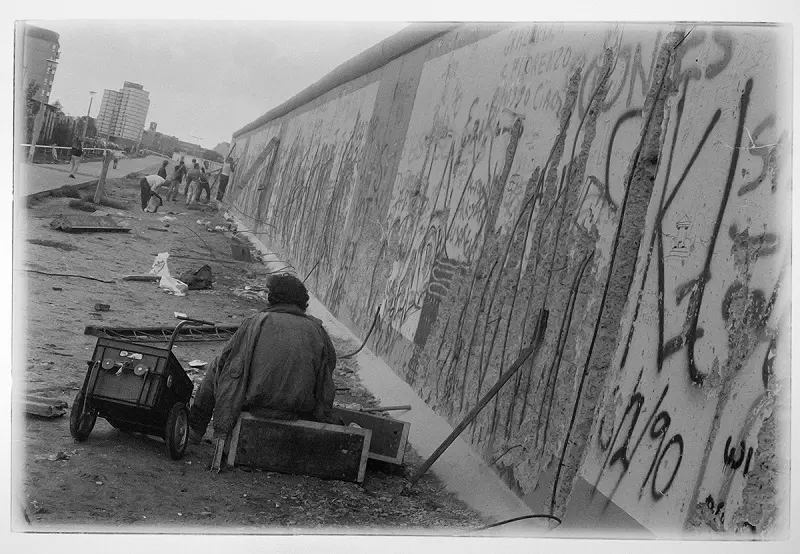
A homeless person in East Germany (Hinz & Kunzt photographer Mauricio Bustamante)
The massive exodus from East to the West since the 1990s was stopped only in 2013, after which even an opposite trend could be noted. Today, surveys show that the majority of Germans are happy with the reunification.
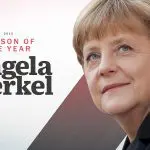
Person of the year, 2015, TIME
Chancellor Angela Merkel, or Mutti Angela, as they call her, led the country in the second half of the period after the reunification. She will be remembered for her progressive policies, and especially for the unifying character of her rule. Even though a leader of the right wing, in her cabinet she also unified parties of the left, building national unity on all grounds.
Nevertheless, like all across the world, so in Germany, the ultra-right is not absent. Particularly the eastern (poorer) part of the country is known for the ever stronger right-wing political forces, such as Alternative für Deutschland – AfD, whose orientation is contrary to the German progressive and democratic policies.
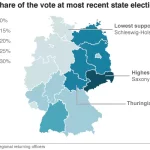
Support for AfD in 2020 (BBC)
The second big lesson from the German unification is in that friendship between states really does exist in the world. Nothing is impossible when you have the support of sincere friends among states. Such was also the case with the German reunification in 1990.
The most important lesson for the world is that Germany, its citizens, have showed that a fierce and brutal totalitarian system as was the one of the Soviet Union, can be defeated without violence. The Germans, in harmony and by lending a hand, are bridging the deep differences that the decades-long divisions have caused.
Today, united Germany is one of the leading countries in the world in all areas of social, cultural, scientific and political life. The German nation is one of the leaders of the free, democratic world.
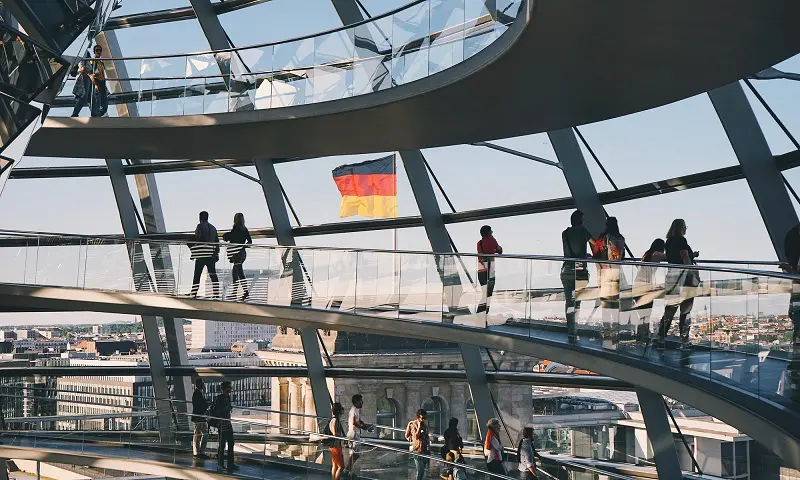
Germany today.
More than 80 million people call Germany their home. Millions of people from around the world live in this super modern state, with their entire ethnic, religious and cultural diversity. It is the country in which the foundations of the House of One were laid, a temple in the heart of Berlin, where followers of Christianity, Islam and Judaism will soon pray together. Though being a unique project in the world, it is just a small part of the endless wealth of ideas and achievements of the unified German nation. Which, together with the free world, is facing the difficult consequences of the Russian military aggression against Ukraine.
Today’s Germany is decisively dealing with challenges, is fighting problems with dialogue, but also with much courage and audacity, effort and dedication. The German way.
*The inspiration for much of this text comes from the statements of the German Ambassador to North Macedonia, Н. Е. Anke Holstein.

